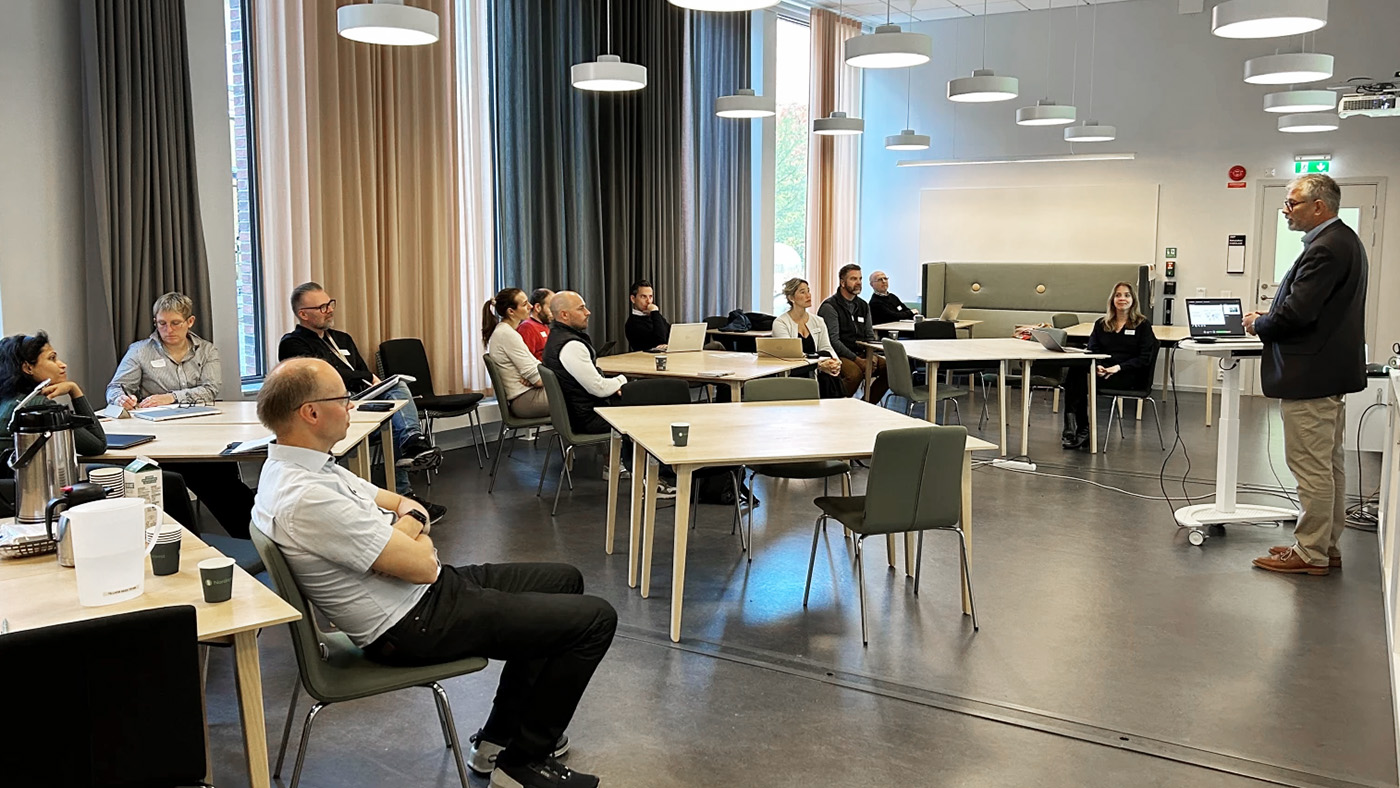The first Dig-IT Lab Education for Digitalisation workshop focused on the importance of digitisation in the real estate industry, with streamlining of the process from planning to management and handling of data.
The DIG IT lab Education for Digitalisation workshop was held 15 October at KTH campus. Staffan Nordenstråle, Head of IT and Digitalisation Director at Volvo Real Estate, opened with a lecture about how to get co-workers onboard the digitalisation train, and how Volvo has worked with competence development.
The workshop continued with group discussions covering reflections and comparisons with participants’ own organisations, their roles in the digitalisation process, the skills their employees need to meet digital goals, required efforts at various company levels, and the key issues for understanding the industry’s overall digitalisation needs.
In summary, the importance was emphasised of the real estate industry adapting to digitisation by improving competence, streamlining processes and increasing cooperation with system suppliers.
Short summary of the discussions
- Efficiency and requirement setting: The industry needs to improve its way of setting requirements and maintaining properties, with an increased understanding of property data.
- Skills development: There is a skills gap among employees when it comes to digital tools. Training and an understanding of user friendliness are central to being able to use the systems effectively.
- Data visualisation: Making data comprehensible and relevant, for example through color coding, is important for decision-making and communication with tenants.
- Energy and sustainability: Energy issues and climate declarations are becoming increasingly important, which requires new ways of measuring and reporting.
- System suppliers’ role: There is a need for increased dialogue between system suppliers and real estate companies to improve reporting and analysis.
- Standardisation and culture change: A standardised way of working and a culture of continuous competence development are necessary to meet the rapid technological development.
- Future issues: Questions are raised about how companies work with digitisation, requirements and skills needs to strengthen their operations and meet new challenges.

